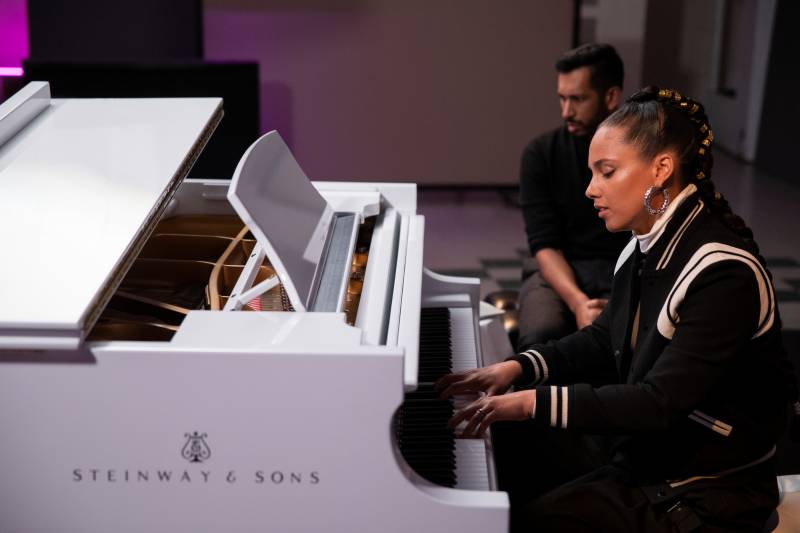Big headphones are a must before diving into Song Exploder, the four-part Netflix documentary series based on the podcast of the same name. Hosted by musician and podcaster Hrishikesh Hirway and directed by filmmakers Morgan Neville and Nicola B. Marsh, Song Exploder tells the story of a song from beginning to end. In just under a half-hour, musicians take the audience through the process of writing, composing, performing, recording and releasing a song. Music fans get a glimpse into the making of a song, and see how much care is placed into every decision that ends up on the final cut.
The series is highly-cinematic, aiming more to tell the emotional story of each song than digging too deeply into the finer details of production or the trivialities of recording. Fans of each artist will no doubt learn something new about each track and its maker’s creative process, but the episodes also serve as a good introduction for new listeners.
With just four episodes, selecting the artists to interview was no doubt a challenge, especially when trying to represent a wide spectrum of creative methods. For this limited-run, Alicia Keys, Lin-Manuel Miranda, R.E.M., and Ty Dolla $ign are the featured guests, with cameos from their many collaborators like Sampha, Brandy, Blaq Tuxedo, and Alex Lacamoire. While Keys’ episode has a cool subtlety, Miranda’s is bright and dramatic, and Ty Dolla $ign’s is more goofy, with animation thrown into the footage.
R.E.M.’s episode stands apart from the rest, not telling the story of a recent track, but rather their biggest hit, “Losing My Religion.” The interview leans on their recollection of the era, plus archival footage to give a glimpse into the song’s recording and release in 1991. It plays more like an episode of VH1’s Behind the Music, with less drama but equal self-importance. Still, you’ll see some vulnerability in the group, especially when given a moment to talk less about their experiences, and more into their sense of wonderment that this song came into being and connected with so many people for entirely different reasons.
In contrast to the podcast, where Hirway edits his half of the interview out, the Netflix show makes his presence known, adding a welcome through-line to the series. As a host, he’s warm and friendly, and attentive to the guests. He brings this out most in the final episode, where he’s given a little more screen time and has no trouble navigating between light-hearted discussion and getting into the nitty-gritty of the recording process (plus, he has just the smoothest voice).

9(MDAxOTAwOTE4MDEyMTkxMDAzNjczZDljZA004))

